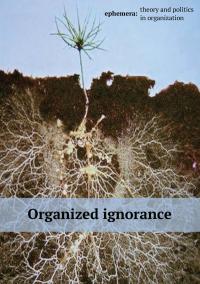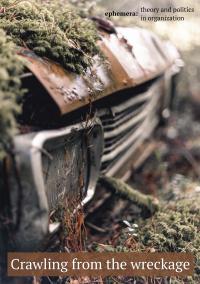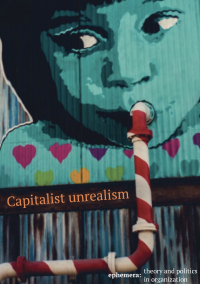climate change
Theory's best practice
Introduction
In 2004, the ephemera collective replaced its original subtitle, ‘critical dialogues on organization’, with a new version: ‘theory and politics in organization’. The first had survived for just three years, while the second has remained with us ever since. This should not be surprising, given that ephemera has always had a dual focus on theory, with a special interest in philosophy, on the one hand, and in politics, and the movements that challenge the hegemony of transnational corporations in particular, on the other.
After progress: Notes for an ecology of perhaps
'Perhaps! – But who is willing to concern himself with such dangerous perhapses! For that we have to await the arrival of a new species of philosopher, one which possesses tastes and inclinations opposite to and different from those of its predecessors – philosophers of the dangerous “perhaps” in every sense. –And to speak in all seriousness: I see such philosophers arising.'
Friedrich Nietzsche (1990), Beyond good and evil
Privatising the atmosphere: A solution or dangerous con?
In 1833 William Forster Lloyd wrote a pamphlet (Lloyd, 1833), which described what has later become known as the ‘tragedy of the commons’ (see Hardin, 1968). It described how self-interested subsistence farmers would destroy common land by over-stocking it with cattle. If you are struggling to feed your family then short-term self-interest is understandable, although there are numerous examples of how communities across the globe have worked collectively to sustain their local environments for hundreds or even thousands of years.




